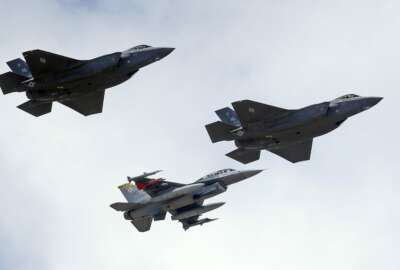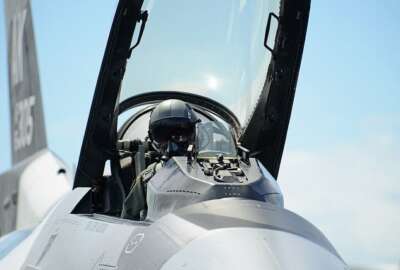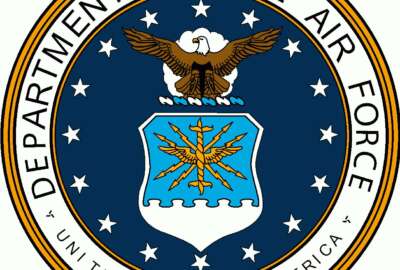
Video games are the next frontier for Air Force recruiting
The Air Force is developing a video game that will recognize skills of online players.
Best listening experience is on Chrome, Firefox or Safari. Subscribe to Federal Drive’s daily audio interviews on Apple Podcasts or PodcastOne.
Get your controllers ready and tell Mario to warm up his legs because video games are the newest recruiting tools for the Air Force.
Imagine a world where video games are built to test for certain skills the Air Force wants and needs and then the service could hone in on IP addresses that excel in those games.
Sounds like the book Ender’s Game, right? But it may not be that far off.
Lt. Gen. Steve Kwast, the Air Education and Training Command chief, says the first iteration of games with those capabilities could come out as soon as this summer.
The idea is to create video games sponsored by the Air Force and let people play them. From there the Air Force can monitor what IP addresses are doing particularly well and offer them incentives to join the military.
“That game gives me insight into their skill, their knowledge, their attributes and their characteristics. I don’t need to know their names, but I know that IP address so-and-so really has unique skills to be a helicopter pilot,” Kwast said, during a May 24 breakfast with reporters in Washington.
The game is currently in development and takes its data from the Pilot Training Next program in Austin, Texas. Pilot Training Next took 15 officers and five enlisted airmen earlier this year and put them through an experimental training course that uses new technologies to discover the attributes that make a good pilot.
“This is student-centric learning,” said Lt. Col. Robert Vicars, Pilot Training Next initiative director. “We are going to use immersive technology to see how we can help people learn more effectively. This is an initiative to explore whether or not these technologies can help us learn deeper and faster. The next generation of technology is emerging so we will rely on current as well as future technologies. We are looking at building an intelligent tutor to monitor the students. It will track their biometrics and understand their stress level to optimize the learning environment for the individual and put them under the right amount of stress to create learning.”
The game will take data from what the Pilot Training Next initiative learns and look for those characteristics in players.
The video game won’t necessarily test just for pilots, it can also test for any attribute the Air Force wants depending on what the game is and what settings the Air Force puts on the game.
Latest Defense News
“It’s amazing what we know. Our team of psychologists, sociologists and cultural anthropologists, when they get together and you look at the body of knowledge out there. It’s amazing that by looking at a couple of scenarios and making you make some decisions and answer some questions through a game I can measure things like critical thinking, creative thinking, conceptual thinking, contextual thinking, collaborative thinking, constructive thinking. I can tell if you are empathetic, I can tell if you cheat, I can tell if you cut corners, I can tell if you are morally courageous under pressure or whether you save your own skin,” Kwast said.
The game may be a way for the Air Force to widen its talent pool, especially for pilots.
The Air Force is at least 2,000 pilots short right now. It’s making a lot of changes to grow its pilot force.
The Air Force is increasing the number of pilots it trains a year from 1,200 to 1,400.
It’s also trying other ways of recruiting.
“We do have a couple of experiments to see if we can go faster. We are partnering with some local universities to see if we can take some of their students who have gone through one of their aviation programs. They already have their commercial multi-engine ratings and then can we pipeline them and not do the whole training, but just do the T-1 training and cut the pilot training in half, as well as experiment to see if we can use technology, some virtual reality and augmented reality to determine ‘Can I shorten that timeline?” Air Force Deputy Chief of Staff Gen. Stephen Wilson said.
Read more of the DoD Personnel Notebook.
Copyright © 2025 Federal News Network. All rights reserved. This website is not intended for users located within the European Economic Area.
Scott Maucione is a defense reporter for Federal News Network and reports on human capital, workforce and the Defense Department at-large.
Follow @smaucioneWFED





